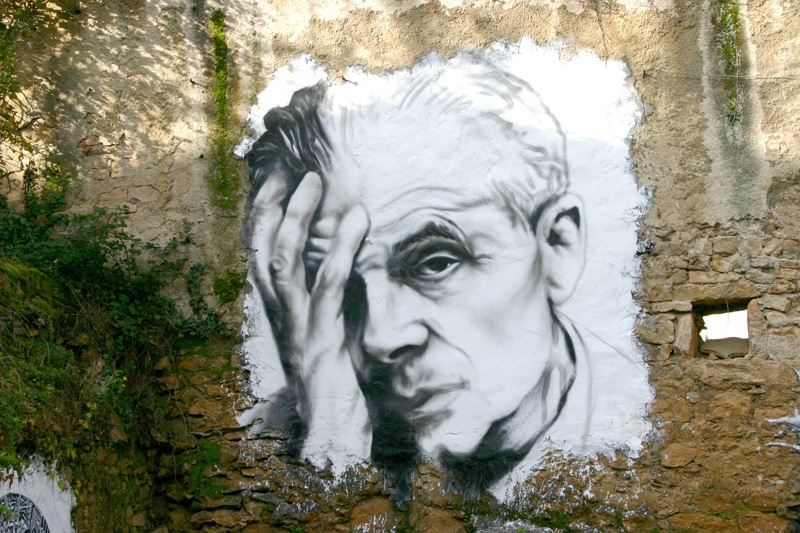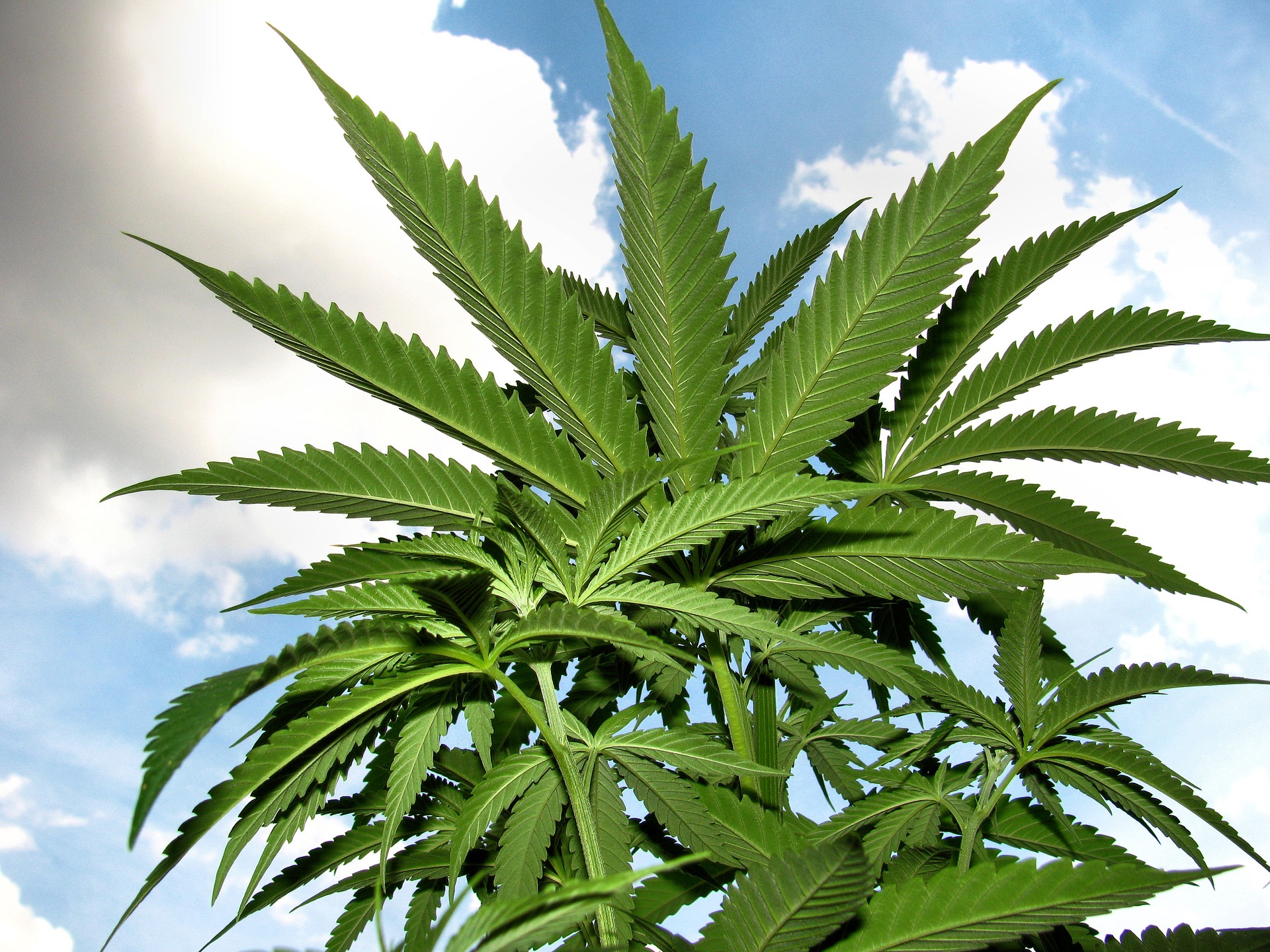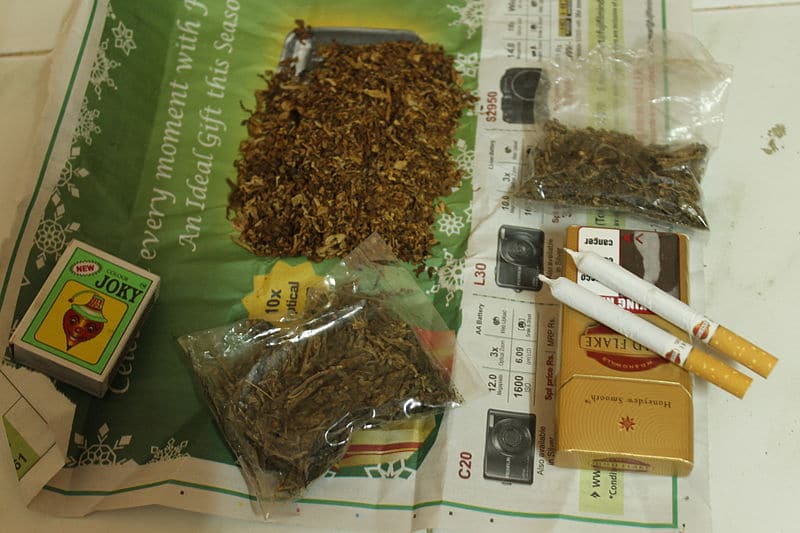Aldous Huxley was, perhaps, the definition of a “mid-century British intellectual”; he was the Platonic ideal you’d conjure up if someone used that phrase. Tall, thin, spectacled (he struggled with sight his whole life), Huxley could effortlessly quote thousands of years of literature and deliver insight to you in a reedy trans-Atlantic accent. But his traditional appearance hid a mind of radical invention and the willingness to go where his creativity led.
Nowhere was this perhaps more true than in his early usage of LSD, which he recognized as a way to fully understand himself and the universe in which he lived. In doing so, he opened up its possibilities for writers, for artists, for musicians, and most importantly, for psychologists and anyone who needed help exploring the unknown world of their own mind.
Brave New World
It was Christmas Eve, 1955. Aldous Huxley, who was 61 at the time, was already a famous writer, and one drenched in the miserable and bloody century whose midpoint had just passed. He was known particularly for his gloom. Brave New World, his most famous work, was a dystopian nightmare in which a drug, Soma, lulled everyone into false complacency and a sense of unquestioning stasis, which was the opposite of freedom (you could argue that this was a more prophetic vision than Orwell’s 1984). Other novels included After Many A Summer Dies The Swan, a bitter farce about the longing for immortality, and the horrifying, post-apocalyptic sci-fi novel Ape and Essence. Needless to say, he wasn’t one of the world’s great optimists.
And yet, on that Christmas Eve, Huxley and his wife tried LSD for the first time. He had already been using mescaline for therapy (a turnaround from Brave New World, when he portrayed the psychotropic substance as even worse than Soma), but felt that LSD allowed him an even greater understanding of himself. He began to write extensively about it, and use it with the help of his new friend, Timothy Leary.
Huxley became a great exponent of LSD for creativity, as he said, it helped him as a painter. It’s important to note that Huxley did not believe it made him a better painter, or that he could paint while actually undergoing an LSD experience (he felt that one ought to focus only on the experience). As he said, “If you were having a love affair with a woman, would you be interested in writing about it?” He also didn’t believe that LSD would grant someone talent who didn’t already possess it. Huxley was always a realist. He believed that he saw the universe more clearly, and then was able to take that experience into his art.
But LSD was perhaps more important to him for the psychological insight it provided. Rather than paraphrase, why not allow the man himself to explain?
“While one is under the drug one has penetrating insights into the people around one, and also into one’s own life. Many people get tremendous recalls of buried material. A process which may take six years of psychoanalysis happens in an hour — and considerably cheaper! And the experience can be very liberating and widening in other ways. It shows that the world one habitually lives in is merely a creation of this conventional, closely conditioned being which one is, and that there are quite other kinds of worlds outside. It’s a very salutary thing to realize that the rather dull universe in which most of us spend most of our time is not the only universe there is. I think it’s healthy that people should have this experience.”
Tomorrow and Tomorrow and Tomorrow
After his first experience in 1955, Huxley became a great proponent of the usage of LSD. His most famous work on its benefits is The Doors Of Perception, which allowed many people more mainstream than he to accept its ideas. After all, if a smart guy like Aldous Huxley could use LSD, why not other people? This became the heyday of LSD in psychology, before reactionary backlash shut it down. Men like Cary Grant swore by it, saying that it helped them understand themselves.
In a broader way, Huxley’s honest embrace of LSD changed the culture. He was a fierce advocate of seeing things differently, of opening those doors, and that idea trickled down to a new generation, which questioned everything, and held in contempt the “fixed ideas” and “great certainty” that Huxley understood needed to be questioned in order to progress. It was interesting how this stodgy English intellectual used the power of his brilliance to change a culture (including, of course, The Doors, who were named after his powerful tract).
On Later Works
In 1947, Huxley wrote an introduction to a collection of Goya sketches, with a focus on Goya’s dark and terrifying late-period pieces. In it, an aging Huxley muses on the nature of later works, and what they reveal. He believed that the true artist came out, the one who shook off the impulses of youth and the bitterness of lost youth to become full in the flush of age. What that said about Goya makes one shudder to think, but you could argue it was the opposite of what it said about Huxley.
His last major novel, Island, was another future society in which “drugs” controlled the people, but in this instance, it gave them peace, and true happiness, because they had insight into themselves. In truth, Island is far from a great work — didactic even for Huxley, and the plot is entirely secondary to the philosophy and the intellectual roundelays between characters. Still: like all Huxley, the conversations are worth reading, and anyone who loves his works — and by extension the man — will be happy to know that toward the end of his life, through LSD and the power of perception, he found a path to happiness, for himself and for the human race.
It’s one he took to the end, requesting LSD to help ease him into his cancerous death. His wife, Laura, who administered it, wrote lovingly of the peace it brought him. You truly must read her letter to Huxley’s children in full, but the description of his end is a gem, complete in itself. It gives a peaceful coda to a man who realized that to know happiness, you had to open yourself up to the infinite. To find the smallest part of yourself, the aleph of eternity had to be yours.
“I had been warned in the morning that there might be some upsetting convulsions towards the end, or some sort of contraction of the lungs, and noises. People had been trying to prepare me for some horrible physical reaction that would probably occur. None of this happened, actually the ceasing of the breathing was not a drama at all, because it was done so slowly, so gently, like a piece of music just finishing in a sempre piu piano dolcement.”










